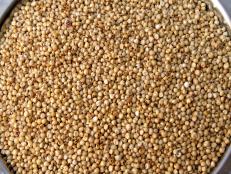The Latest on Intermittent Fasting

lionvision
Intermittent fasting (IF) remains a popular trend. But unlike many other diet fads, a considerable amount of research is being done to determine the validity and effectiveness of this eating pattern. Might switching on and off of eating be right for you? See what the latest research has to say.
The Basics
Intermittent fasting involves days of restricted calorie intake in flux with days where an appropriate or “normal” number of calories are eaten. Popular plans like the Fast Diet suggests a 5:2 format where 2 non-consecutive days are spent fasting, with only 25% of daily calorie needs (usually around 500 calories) are eaten. The remaining 5 days of the week follow a normal caloric intake.
Another variation of IF also referred to as “Timed Restricted Feeding” (TRF) is where dieters consume all daily required calories within an 8-hour window of time, thus elongating a daily fasting window of 16 hours.
While there are not hard and fast rules for what to eat, calorie intake must be strictly monitored. Taking in too much or too little on normal days may have a negative impact on results.
Symptoms include hunger (duh?!) as well as fatigue, headache and irritability. All of the shifting on and off food intake may also lead to some unpleasant GI symptoms like gas, bloating and constipation. A potential silver lining: many folks on this plan report that symptoms subside after a few weeks.
New Research
A large percentage of the existing research on IF has been conducted on laboratory animals, but there have been some beneficial findings. Over the last decade studies on IF have linked this style of eating to weight loss, fat loss and reduced risk of disease.
A study published in the 2016 issue of Metabolism found that hormone responses associated with TRF led to improved insulin resistance and increased use of fat for fuel. Another rodent study published in late 2017 also connected IF to successful weight loss as well as reductions in risk factors for insulin resistance and cardiovascular disease.
There’s also a growing body of research investigating the effect of IF on metabolism and Alzheimer’s disease. In a fresh-off-the-press study from 2018, IF was linked to preventing memory loss and age related memory decline in Alzheimer’s. Findings also included a reduction in body fat.
Is IF For You?
Type 1 diabetics and women that are pregnant or breastfeeding are never good candidates for an IF eating pattern. If you have other medical conditions, you are encouraged to check in with your MD before pursuing this type of diet. More research is likely needed to assess how IF affects metabolism of humans and other considerations about lifestyle and managing side effects also deserves serious thought.
































